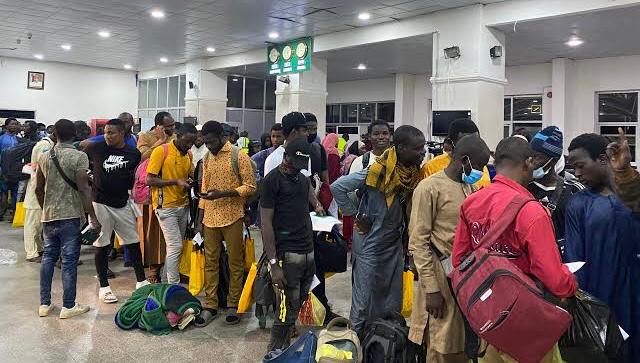Recent data from the Executive Office for Immigration Review (EOIR) shows that 897 Nigerians were granted asylum in the United States over the past two years.
According to the figures, U.S. judges approved asylum requests for 514 Nigerians in 2023, while 383 individuals received approval in 2024, reflecting a 25% decline between the two years.
During the same period, 501 Nigerians had their asylum applications rejected, with 236 denials recorded in 2023 and 265 in 2024.
Meanwhile, Nigeria ranked third among African countries in terms of U.S. deportations, with over 400 citizens removed, according to a related report.
The EOIR compiles these statistics annually through the U.S. Department of Justice’s “Asylum Decisions by Nationality” portal, tracking asylum cases across various nationalities.
In 2024, Nigeria had the third-highest number of asylum seekers among African countries, following Cameroon with 527 cases and Ethiopia with 291.
Other African nations with significant asylum figures included Ghana (238), Egypt (203), Eritrea (193), Senegal (99), Uganda (86), and Sudan (42).
Despite these numbers, African applicants still make up a relatively small portion of the overall asylum applications in the U.S., where most applicants come from Latin America and Eurasia.
Globally, Russia had the highest number of asylum approvals in 2024, recording 3,605 grants, mainly due to draft evasion and political dissent stemming from the Ukraine conflict. China followed closely with 2,998 approvals, driven by citizens fleeing political repression. Venezuela and Nicaragua had 2,656 and 2,000 grants, respectively.
Central American nations also saw a high number of approvals: El Salvador (1,684), Honduras (1,624), Guatemala (1,592), Cuba (1,007), and Mexico (751).
On the rejection side, Mexico topped the list with 3,910 denials, followed by El Salvador (2,880), Ecuador (2,774), Peru (2,424), and China (903).
Under Section 208 of the Immigration and Nationality Act, individuals in the U.S. can seek asylum if they demonstrate a well-founded fear of persecution based on race, religion, nationality, political opinion, or membership in a particular social group.
However, factors such as criminal records, missing filing deadlines, or evidence of “firm resettlement” elsewhere can negatively impact an applicant’s case.
The U.S. asylum system includes two paths: affirmative asylum, processed through U.S. Citizenship and Immigration Services (USCIS), and defensive asylum, pursued during removal proceedings. Affirmative applications that are denied are forwarded to immigration courts where applicants may face opposition from government attorneys.



